This week marks the 17th anniversary of Hurricane Katrina.
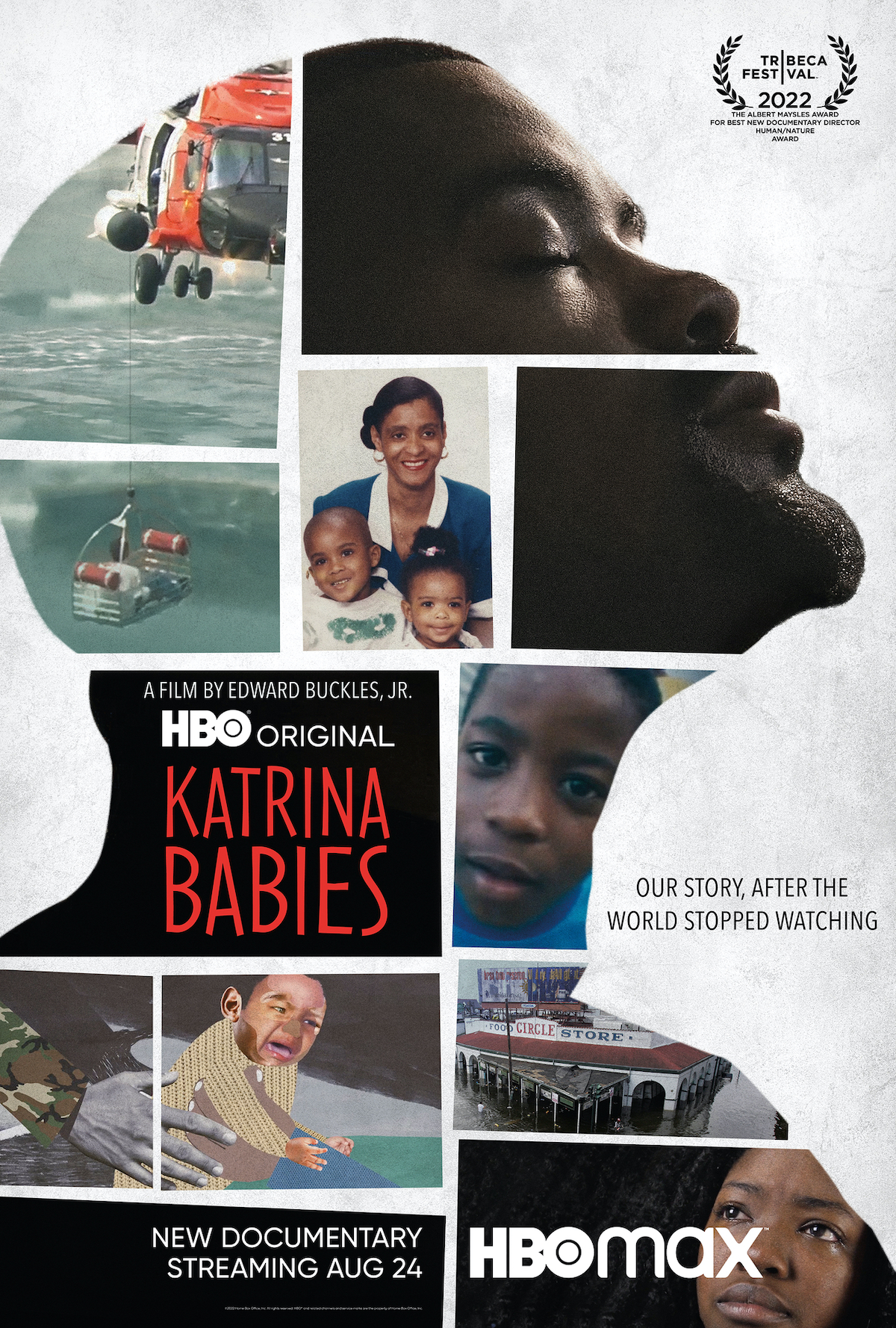
Source: Courtesy of HBO / Courtesy of HBO
While the storm and flooding of the levees wreaked enormous devastation on the city of New Orleans, the displacement, loss of lives and property, and violence that occurred also traumatized an entire generation. Director Edward Buckles Jr. has emerged as a powerful voice of that generation and his film Katrina Babies, shares not only his own story, but stories of friends family members, students and neighbors — many whom have never shared their trauma with anyone before.
BOSSIP’s Sr. Content Director Janeé Bolden spoke with Edward Buckles Jr. about the film, which premiered this week on HBO. Read their Q&A below.
One of the most heartbreaking parts about Katrina Babies is the stories you tell of the kids who did not survive. Can you talk about the importance of telling their stories?
Jacquez Young who was my best friend growing up and came in and saved my life, not even intentionally at a very young age was someone who I always knew, no matter what I chose to do in life, I was going to sing his song. Right? I was going to tell his story. Shantrell Parker was one of my students. She is just one of the examples of the conditions that young people are dealing with.
Just to speak about Jacquez, I draw parallels between the violence in New Orleans and Katrina and I do that without the support of existing data. I’m hoping that this film can create that information to start tracking the stuff. That’s the problem, it’s not being tracked. If you were moved by the fact that these kids never spoke about this and were traumatized and dealing with PTSD, you also have to understand how they are projecting that and how they are outwardly experiencing that. Sadly in many ways, New Orleans being one of the top five most dangerous cities in the country, we do it through violence and we are acting out through violence in many ways. Jacquez is one of the examples of someone who fell under that.
In the film I said ‘These are the conditions we are living in when someone like Jacquez can be murdered in the street.’ And AB says, ‘You don’t even have to be living that life, you don’t even have to be from a bad neighborhood to be impacted by violence.’ Before Hurricane Katrina that was not the case.
A lot of experts always throw it in my face ‘Well Orleans was the murder capital in 1994’. Y’all have been violent people.’ And it’s like, ‘Yeah, but it wasn’t this many kids. If you can address the fact that these kids are traumatized, why can’t you address how they’re showing it? I wanted to use their stories to bring some help to that.
Shantrell Parker, that’s my baby girl, I started teaching her when she was like 15. She was the sweetest girl. In the film she’s talking about everything she experienced and her trauma. She speaks to wanting to be a counselor when she grows up. Then, at 21, she gets murdered. During that time when she’s crying out for help, not just in this film, but just every day in real life at 16, why wasn’t her trauma addressed? And at 21 that was just one of the end results. I thought that it was important to tell those very hard stories because I really want to change those conditions.
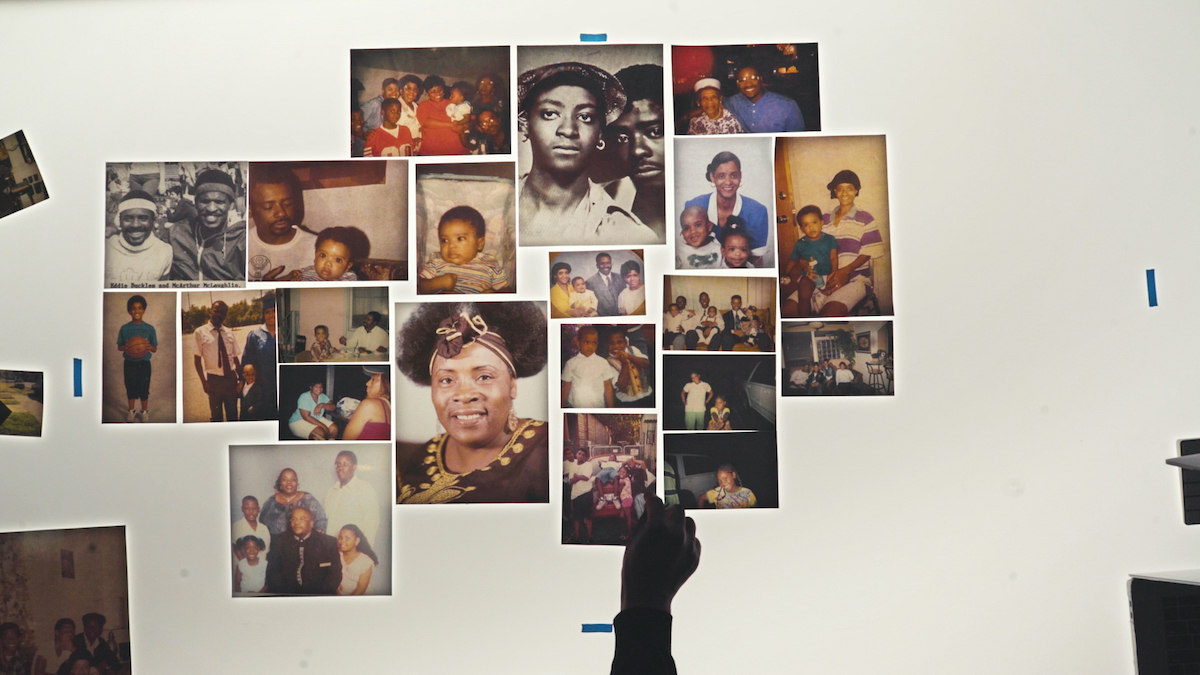
Source: Courtesy of HBO / Courtesy of HBO
Your film won multiple awards when the film premiered at the Tribeca Film Festival. Did you feel validated when you won the awards and the film was received so well?
I didn’t expect to win the awards. Honestly, somebody reminded me of the awards ceremony, I wasn’t going to go. A friend who I met at the festival saw the film at a press screening and he called me and said, ‘Yo I am floored. I am blown away. You should go to the awards ceremony tomorrow.’
He left it just like that. He was like, ‘There’s no way that you’re not going to win.’
It brought a form of validation. Not that much, but I can tell you what did bring a validation from Tribeca. Tribeca did a virtual link and you were able to tune in and screen the film and when New Orleans started to watch it and stamp it and say, ‘This is real.’
Because we are hard. We don’t play about our culture, we don’t play about our storytelling and we definitely don’t play with those who are telling our stories. When they were singing my praises and saying how real and how dope the film is, THAT validated me, and to this day that is the biggest validation that I need. That put me on my, ‘Okay we working with something here.’ So yeah the awards were cool but I think being validated by my people is going to always be all I need.
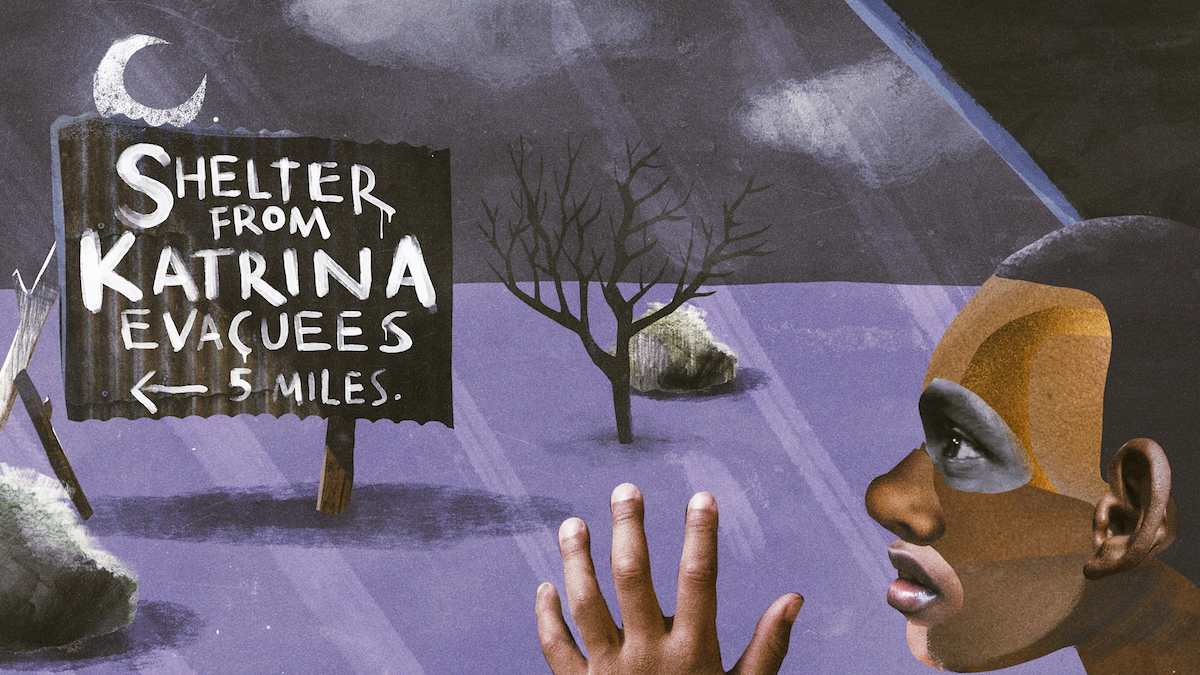
Source: Courtesy of HBO / Courtesy of HBO
The use of animation in this film is so beautiful and touching, can you talk about why you chose to use animation the way you did?
I have to give a lot of credit to my mentor and big brother Chike Ozah, he is the singlehanded reason that I am who I am today, through mentorship. He introduced me to fine art and he introduced me to the power of art, and the power of storytelling when it came to animation and film. I saw him do it in a few projects like Benji and A Kid From Coney Island. I saw how he used animation in storytelling. A few years ago we were talking about using animation in Katrina Babies once we started to edit it. We understood, yes there was a lack of footage to support these stories, but we also understood that these stories are hard to hear. It’s hard to receive these stories, so we felt that animation could create a language that would allow our viewers to be more receptive and vulnerable to what they were hearing. It would open them up to hearing it. I think that’s working.
Now that he’s put me on to art, we’re both crazy art heads when it comes to style. We wanted to find a person with a really dope style and there was this guy Antony Sendra and he’s based in Spain. So all of our work was done on Zoom calls and phone calls. That tells you about his instincts and his heart and his connections to emotions and he just killed it. He came on and really helped us tell those stories. We knew that we really wanted to use a collage style, using old photos that we had from Katrina. We lost a lot of photos and put purpose to them, using the real photos of the characters, that was meant to be. So when you see Tina as an animation those are real photos of her piled on that animation, so it just makes it more emotional and spiritual in a way so I’m very proud of it.
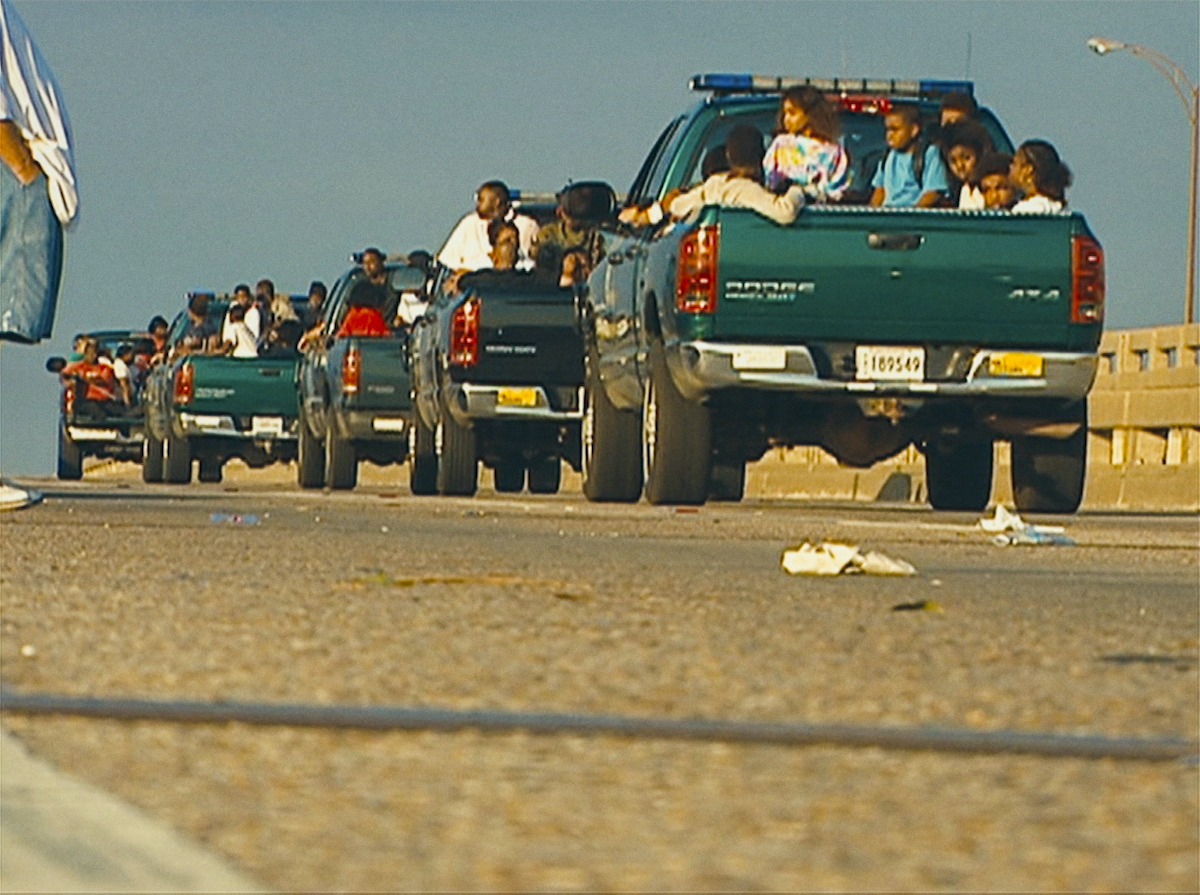
Source: Courtesy of HBO / Courtesy of HBO
How therapeutic was it making this film?
It was a process. The whole process to everything being therapeutic doesn’t just start at it being healing. It doesn’t just start at it being therapeutic. One of the hardest parts of therapy is that first conversation. For the first couple years, it was very tough, it wasn’t therapeutic. I think now that it’s done and the story is getting out and it’s bringing awareness to our stories now I’m starting to get to that process of being therapeutic. It brought every emotion out of me these past years.
Have you done any therapy?
I did one therapy session year six of making this project. I was in the edit. I’m all throughout the film. It took me seven years to make this film, I didn’t insert my story until year six. I didn’t realize my trauma. I didn’t realize I needed healing. I didn’t realize I was going through similar things as my peers until I was going through my edit.
Trauma always surfaces at the most bizarre and random times that you have no control over. I was watching some home movie footage of my family and I started breaking down. I don’t cry a lot, so I couldn’t stop. I think it happened at a good time because I had to be grounded, I had to be seated. So once I got into the edit, I’m looking at this stuff every single day. Everything that’s hard for everybody else to watch, I had to watch this over a hundred times. It’s impacting my body. I’m having chest pains, I’m having nightmares. I’m moving different. That’s when a friend of mine was like, ‘Maybe you should think about how you want to address that.’
I did one therapy session and I was like, ‘Nope! I’m going to do it after this.’ I just knew I had to be so present for this film and I had to risk myself and finish out this project strong and then I would seek therapy after that. It was taking a lot out of me. But I am actively seeking a therapist now.
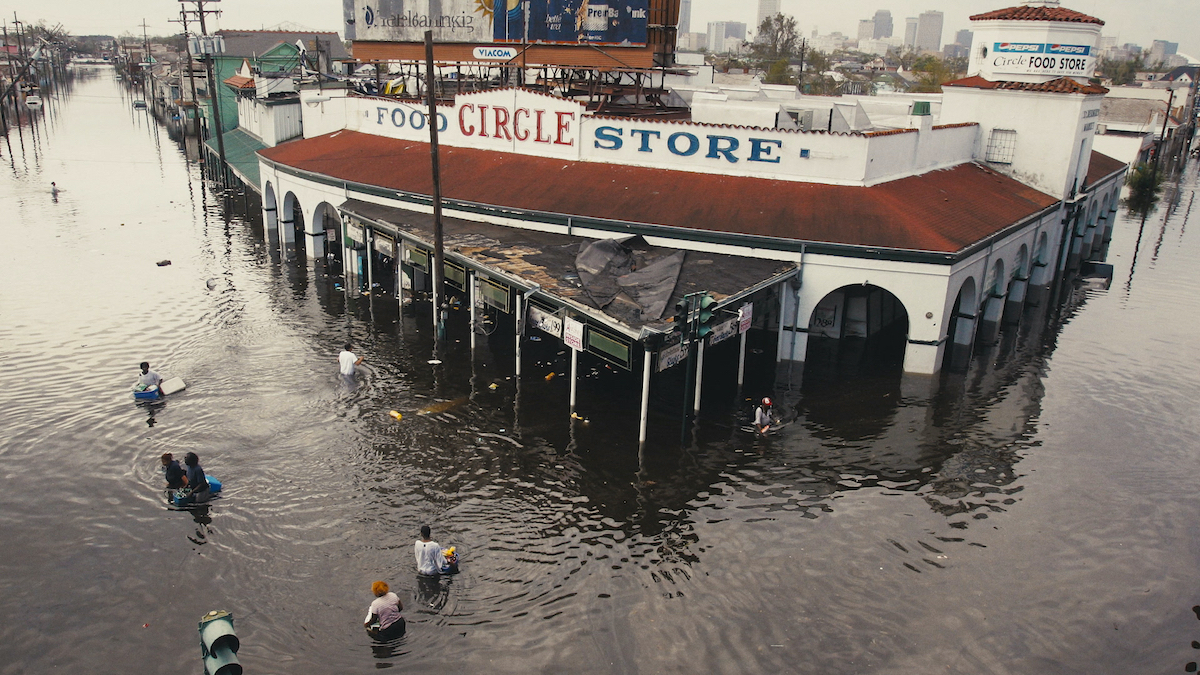
Source: Courtesy of HBO / Courtesy of HBO
The film also touches on the levees and how they really were not built to withstand the storm. Do you think the government and local infrastructure are doing what’s necessary to prevent another Katrina level disaster from happening in New Orleans?
I’ll answer like this. Last year Hurricane Ida happened and Hurricane Ida was the closest thing to Katrina, just not as deadly, and it left people in their attics. It left people stranded for days and people are still rebuilding from Ida. New Orleans didn’t flood, but the surrounding areas did. If you fix New Orleans levees and I’m not confident that they did, just to be honest, my grandmother’s house which was flooded in 2005 with Katrina, floods every single year and she has to file insurance claims every single year. So I would say no, nothing has been learned because why are we still flooding just from tropical storms?
And then I don’t know how much coverage the rest of the world got about Hurricane Ida, but I think the only thing that did change was social media. I always wondered what would Katrina be like with social media. I know the “Katrina Babies,” the youth, we’re not sitting around waiting on help no more. We’re not sitting around waiting on the government or city officials for help us. It was us in the streets during Hurricane Ida doing rescues, it was us making sure that people had generators. It was us making sure that people were good and it’s going to be us making sure that they are good from a mental health perspective after. I don’t think that it changed. I think that we changed and we’re not waiting anymore.
Katrina Babies is currently available on HBO and HBO Max
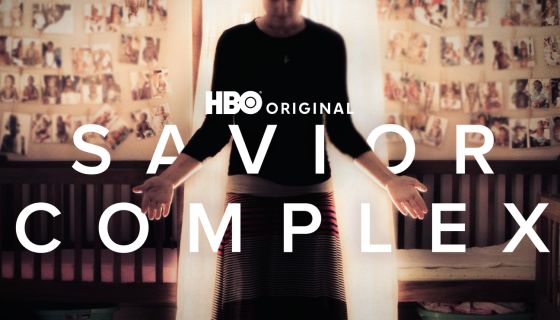








Comments
Bossip Comment Policy
Please read our Comment Policy before commenting.